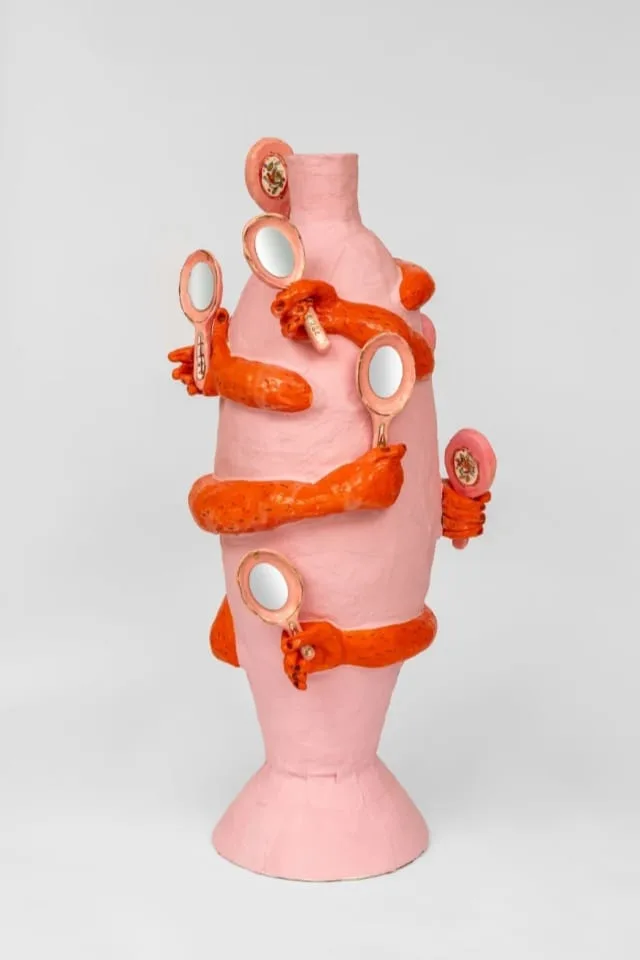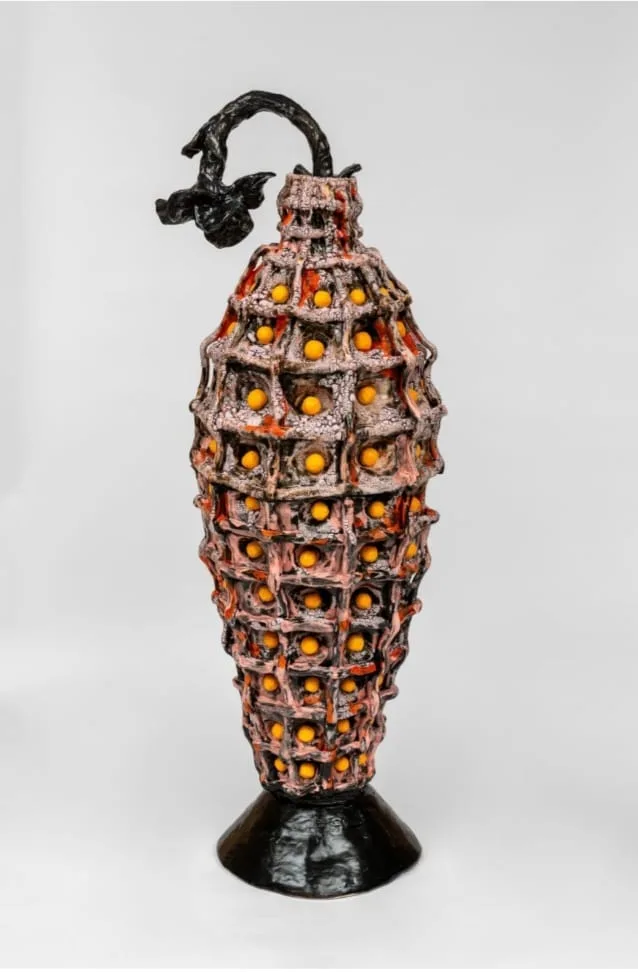Xanthe Somers was born in Harare, Zimbabwe in 1992. She lives between Harare and London, UK. Somers studied Fine Art (Hons) at the University of Cape Town and then progressed into an MA in Postcolonial Culture and Global Policy at Goldsmiths, University of London where she graduated with a high distinction.
Xanthe’s practice is informed by the politics of aesthetics and more significantly how the colonial history in Zimbabwe continues to manipulate aesthetic values. Her work as a ceramic sculptor looks at reimagining everyday life and examining the subtle treason of objects. Through a sense of play, bright colours, mocking tone and exaggerated shapes, the artist challenges the prevailing ideas associated with normalcy, beauty and refinement which have been manipulated by the Christian-Colonial gaze fixed strongly on southern Africa. The artist’s works combine age-old Zimbabwean traditions and materials into her hand-built ceramic sculptures such as weaving, wax fabric, granite stone in combination with new materials and social commentary, as a way of reflecting on the fraught relationship between the past and present.

She has exhibited at the Collect Art Fair in London, at the Untitled Art Fair in Miami, Collectilble Fair Brussels in Belgium, Galerie Revel in France, First Floor Gallery in Zimbabwe, Loop Gallery in South Africa, Wort und Wirkung in Switzerland and in Italy with Fusion Art Gallery. In 2023, one of her sculptures was acquired for the permanent collection of the Victoria and Albert Museum via Galerie.REVEL. Her work is also part of several privates collections.
Xanthe’s solo exhibition Invisible Hand opens on the 29th of August and will run until the 31st of October 2024 at the Southern Guild Gallery in Cape Town. Invisible Hand showcases undervalued yet crucial craft practices traditionally labelled as “women’s work”, such as weaving, sewing, stitching and mending. These activities, often dismissed as mere pastimes or hobbies, hold significant cultural and artistic value in both public and interior spaces. The title references economist Adam Smith’s theory of the free market, which suggests that the pursuit of self-interest by individuals, corporations and legal entities indirectly benefits society as a whole, leading to economic growth and prosperity without the need for centralised coordination or direction. By using this title to make visible labour and efforts that are commonly devalued, Somers reaches for epistemological justice, questioning how “free” the market actually is.



